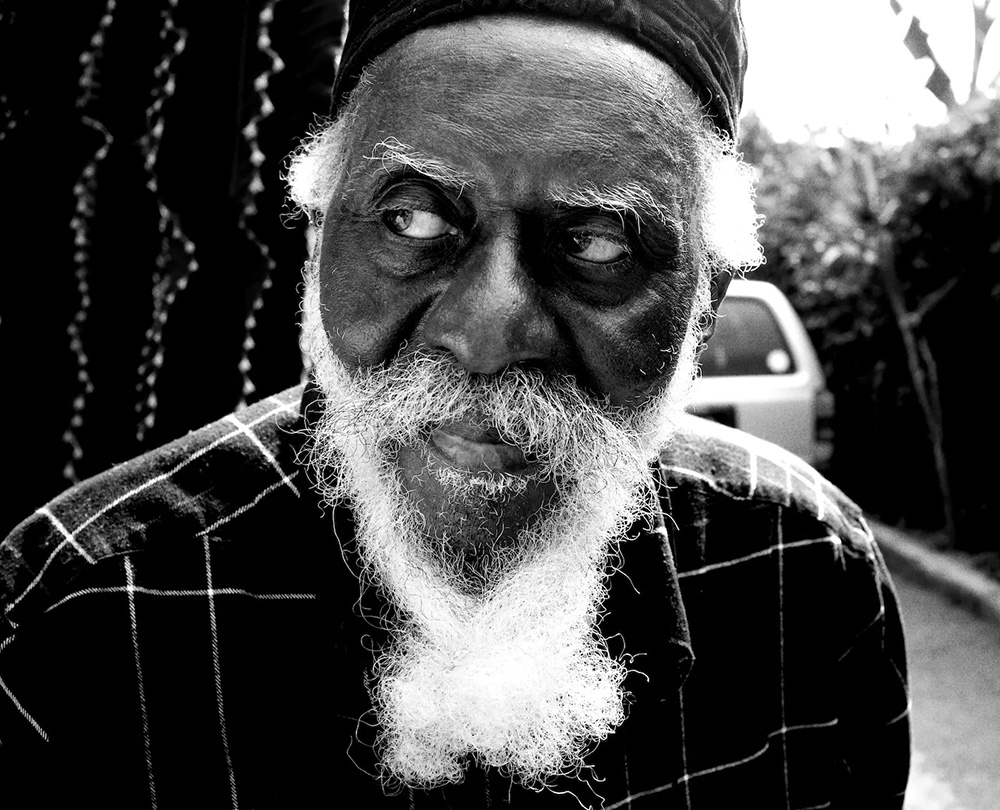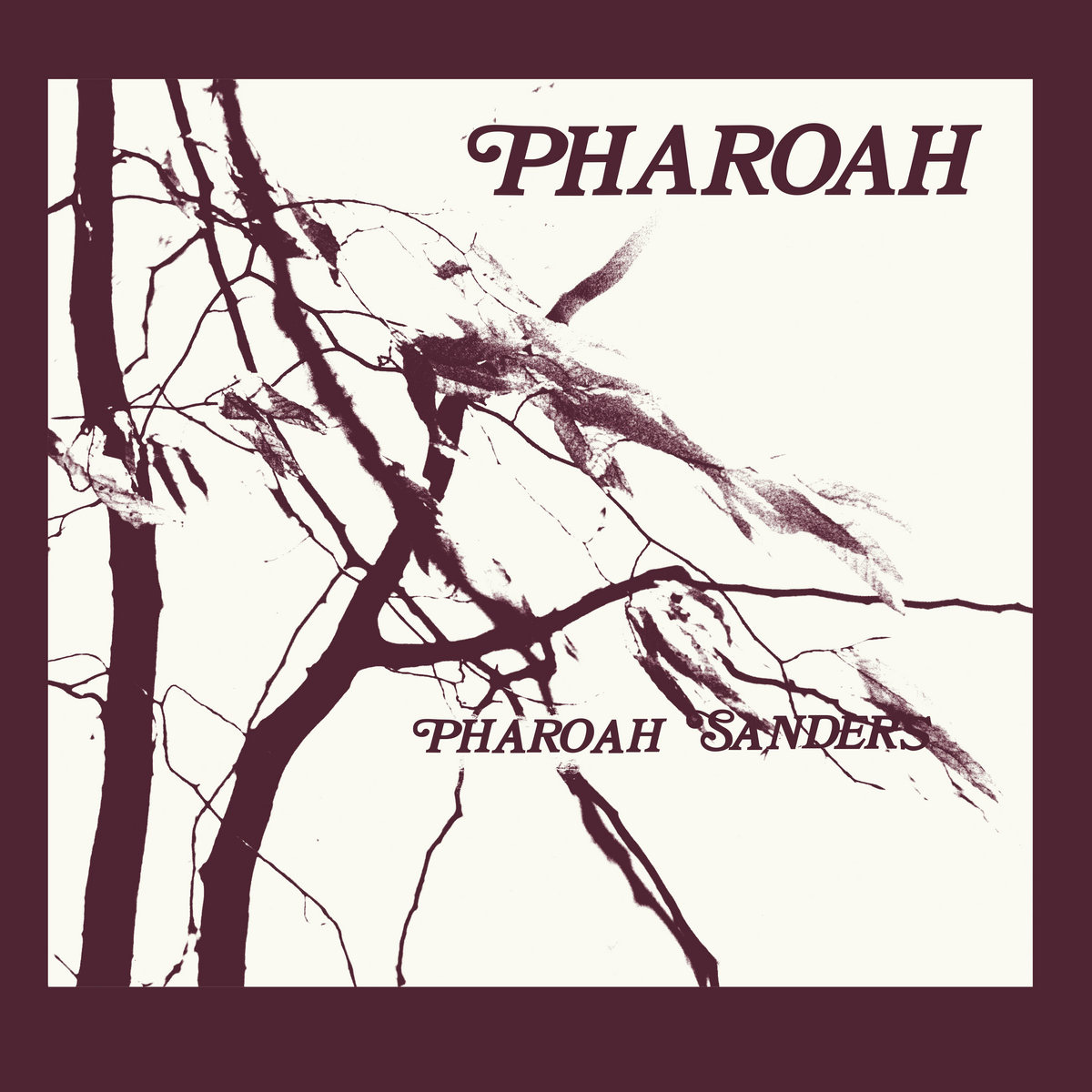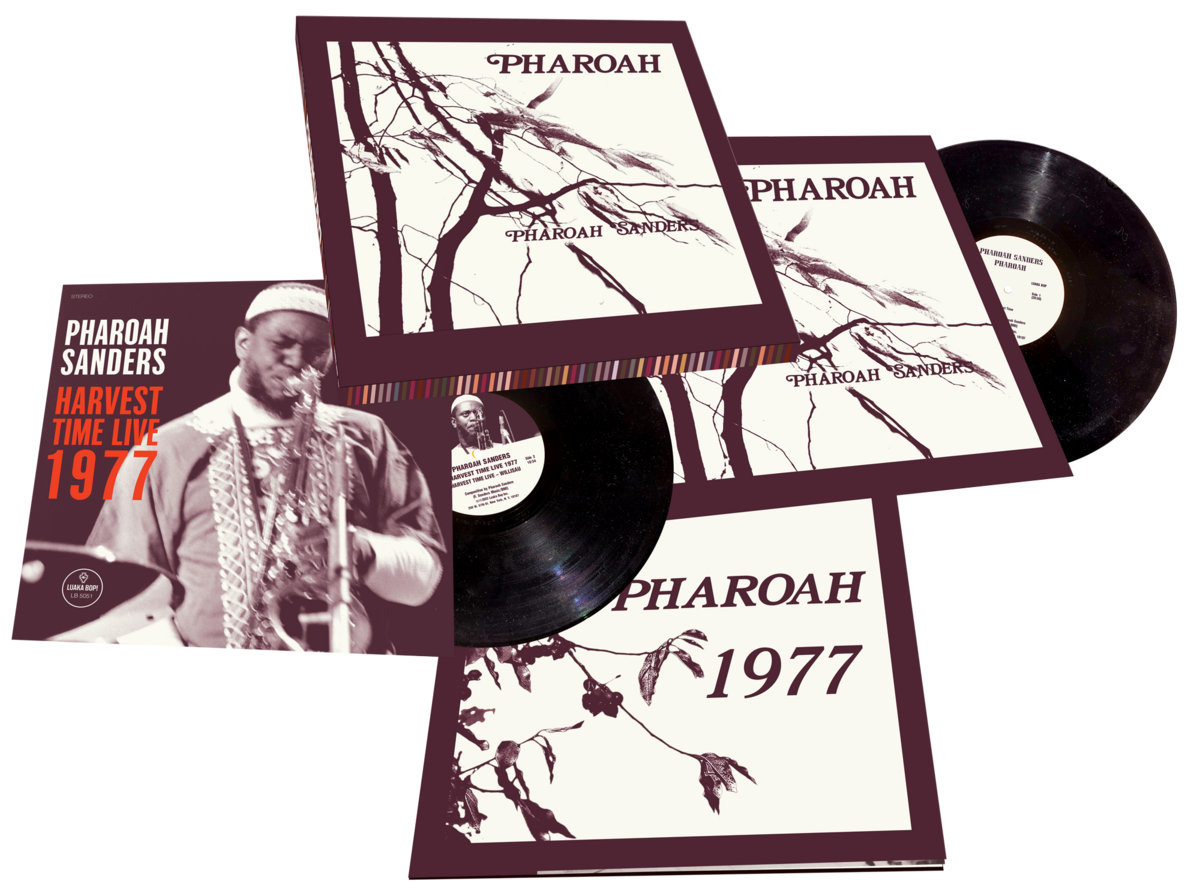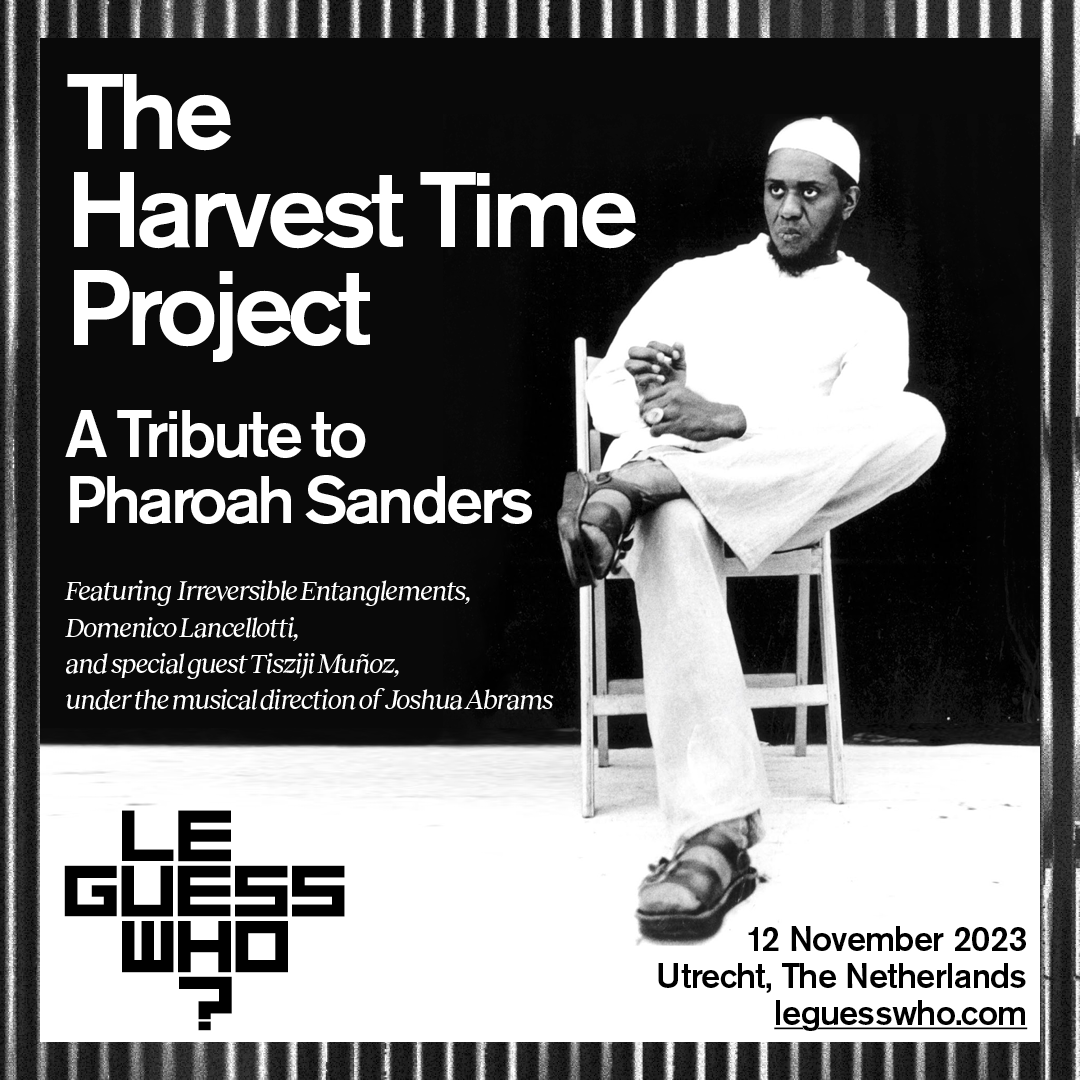1977 Pharoah Sanders Album, Pharoah, Gets Deluxe Box Set Reissue
Assembled with the aid of Sanders before his passing, the remastered LP features 2 previously unreleased live recordings

Great news for humans with souls: Luaka Bop has just announced a reissue of the remarkable 1977 Pharoah Sanders album, Pharoah, and it’s getting the deluxe treatment. This marks the first official vinyl reissue for the record since it was originally released, although some low-quality bootlegs with questionable reviews did pop up in 2020 and 2008 prior to that. Already very scarce and highly sought-after, the demand has only increased in recent years as the popularity of vinyl continues to grow and new fans discover his work, whether that be through older heads or YouTube algorithm. Pharoah doesn’t currently seem to be available on Spotify or other streaming services, which only makes this new reissue that much more vital. From the looks of things, it was worth the wait and we should expect something pretty special when this thing drops later this year. According to the label, Sanders was very much involved in bringing this project to fruition when he passed away last year at the age of 81.
The are likely a few reasons that this album has taken this long to finally receive the reissue treatment that it deserves. The first is that when the CD reissue came out sporting a different cover in 1996 (Note: there was a Japanese pressing the same year with the original artwork), vinyl as a format was essentially dead. I’m not versed enough to comment on whether or not more technical issues or obstacles regarding rights or original masters were involved, but I could also imagine how one of his earlier Impulse! Records releases might naturally present fewer hurdles than an album released on a much more obscure label like India Navigation, as Pharoah was. But beyond that, my gut tells me that a major reason no other physical release has bothered to surface, either prior or since is quite simply that it never seemed like a priority. Sanders was a prolific artist with a catalog of influential and groundbreaking work and, based on what I’m gathering about this project, it wasn’t regarded in such high esteem when it initially came out. For a man with the power to bring down the heavens with the ferocity of his horn, Pharaoh, with its ambient and ethereal tones, was dismissed as an entry into something safer and more mundane.

Often referred to as “Harvest Time,” after the title of the beautiful, sweeping 20-minute-plus masterpiece that takes up the A-side, the 1977 effort ended a 3-year hiatus since the jazz legend had put out an album of his own as a band leader. This may not seem like a long break, but when you consider the sheer amount of consistent output he’d maintained over the decade leading up to that and the tremendous quality of the projects he’d been involved with, some had already begun to speculate his best work might be behind him. Harvest Time would also mark the saxophonist’s first solo release after leaving Impulse!, the label that was responsible for an overwhelming percentage of his work up to that point. One particularly blunt and dismissive review by John Bush of All Music even asserted “Clearly, Pharoah Sanders was losing his way a full ten years after the death of John Coltrane.” “Clearly…” the endurance of the work and its ability to continue to reach new generations nearly 5 decades after its release has proven otherwise.
Upon moving to New York from Oakland in 1961, a young Ferrell Sanders met Sun Ra, who helped out the broke struggling artist and even encouraged his name change. After performing with such notable talents as Ra, Don Cherry, and Billy Higgins, Sanders eventually caught the attention of John Coltrane who welcomed him in; ultimately, as part of his final quintet. After Trane‘s passing, Pharoah would go on to team up with his equally brilliant widow, Alice Coltrane, on such spiritual jazz milestones as Ptah, The El Daoud and Journey In Satchidananda, while continuing to put out bold impactful albums of his own like Tauhid and Karma. Pharoah was nothing if not adventurous, an inimitable voice that played with his soul as much as his instrument. He eschewed any suggestion of limitation and, later in life, continued into less orthodox collaborations with folks like Bill Laswell, and electronic producer, Floating Points with the London Symphony Orchestra.
The irony of Bush‘s reference to John Coltrane in his review is that the era in which Sanders played with him was among Coltrane‘s most controversial and critically panned by those who felt the way-out ventures and abrasive approach were some form of unpleasant “anti-jazz.” I suppose that, after a decade in the game, they now wanted Pharoah for the screeching wails and the skronks many were apprehensive to earlier in his career. An avant-garde, free-jazz, and spiritual jazz pioneer, Sanders was a force of nature that could conjure a hurricane as effectively as he could make the flowers grow. In 1977, he chose delicacy. Underrated, underappreciated, overlooked, and dismissed as new-age shlock, Pharoah was well beyond the time it was created in. If you’re into the sonic equivalent of lying motionless in a canoe with your eyes closed, flat on your back, drifting through thick, crisp clouds of intoxicating mist… there’s a pretty good chance this might be your jam. Pharoah Sanders didn’t only have power, he knew how to harness it. Sometimes he chose to summon the wind and envelope you.

Slated for a September 15th release date, the new reissue of Pharoah will be available in either a double CD set or an embossed double vinyl box set. Both formats will consist of a remastered version of the original album along with a second disc featuring 2 separate previously unreleased live performances of “Harvest Time.” Also included is a “booklet with rarely seen photographs and ephemera, as well as interviews with many of the participants and a conversation with Pharoah himself.”
You can preorder now directly from the Luaka Bop website and Bandcamp.
The following details come to us via Luaka Bop
For those of you who already know this record, then you know that its origin story is as elusive as Pharoah was about everything Pharoah. It was born out of a misunderstanding between him and the India Navigation producer Bob Cummins, and was recorded when he was at a crossroads in his career with an unlikely crew. Among them was a guitarist who was also a spiritual guru, an organist who would go on to co-write and produce “The Message,” and a classically trained pianist—his wife at the time, Bedria Sanders—who played the harmonium despite never having seen one. At times ambient and serene, at others funky and modal, PHAROAH radically departed from his earlier work. And it became beloved.
Last fall, we were working with Pharoah on this project when he unexpectedly passed away. At first, it was hard to know what to do. We loved him, and the reason you do all of this is not solely for the music, but also for the person who made it. It’s their personality, their humor, and their wishes that drive you forward. So, we decided to go deep into the research. We set out to create something that showed Pharoah and his music in a new light.
Over the next few months, we’re going to share with you all the amazing things we found, from personal photos of Pharoah to newspaper clippings that people saved in their time capsules. And we’re going to share the live versions of “Harvest Time,” which turn the original piece on its head.
For seasoned listeners and new acolytes both, Pharoah will never sound the same.

The physical formats are only the beginning of this reissue campaign, as a series of international performances called “The Harvest Time Project: A Tribute to Pharaoh Sanders” are scheduled in support of the new box set. These performances will run into next year with the first one taking place on November 12 at Le Guess Who? Utrecht, Netherlands. The lineup for this show will involve Irreversible Entanglements, Domenico Lancellotti, and special guest Tisziji Muñoz under the musical direction of Joshua Abrams. The Le Guess Who? website further elaborates:
“The Harvest Time Project is an ever-evolving concert which will happen around the world, featuring a selection of different musical ensembles who will come together in different iterations to reinterpret Harvest Time. Each performance will diverge from the others as much as Pharoah’s own wildly different live performances.“